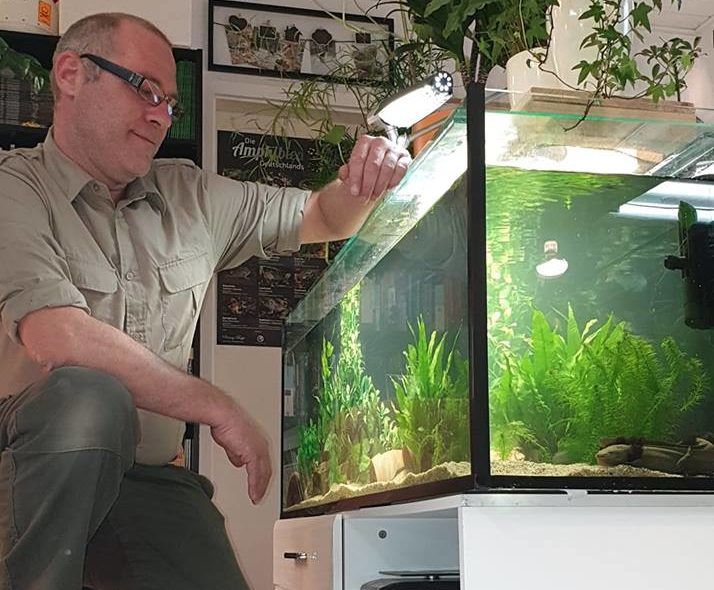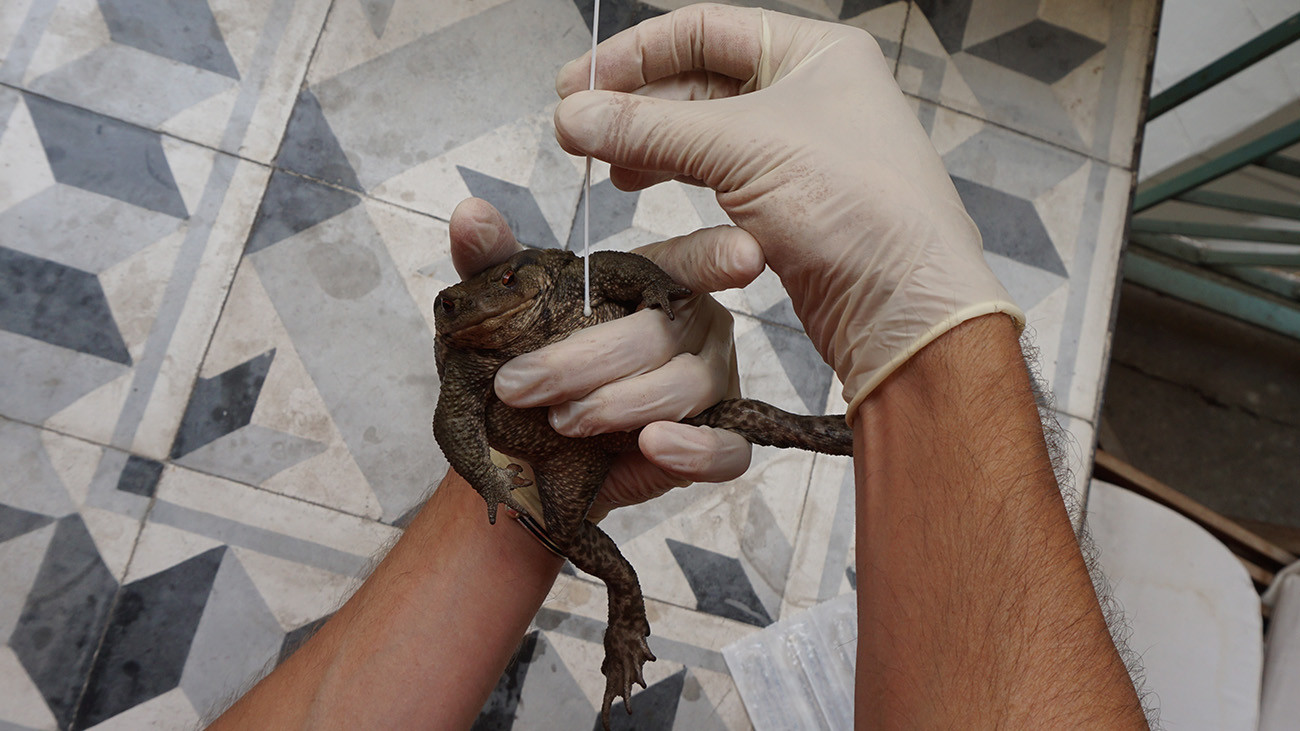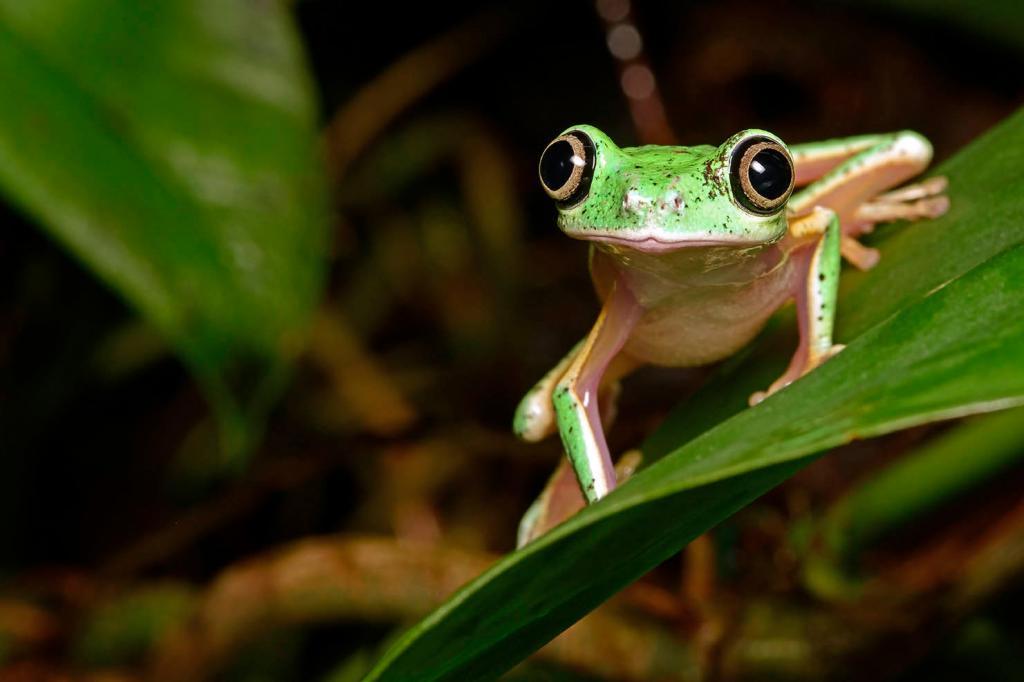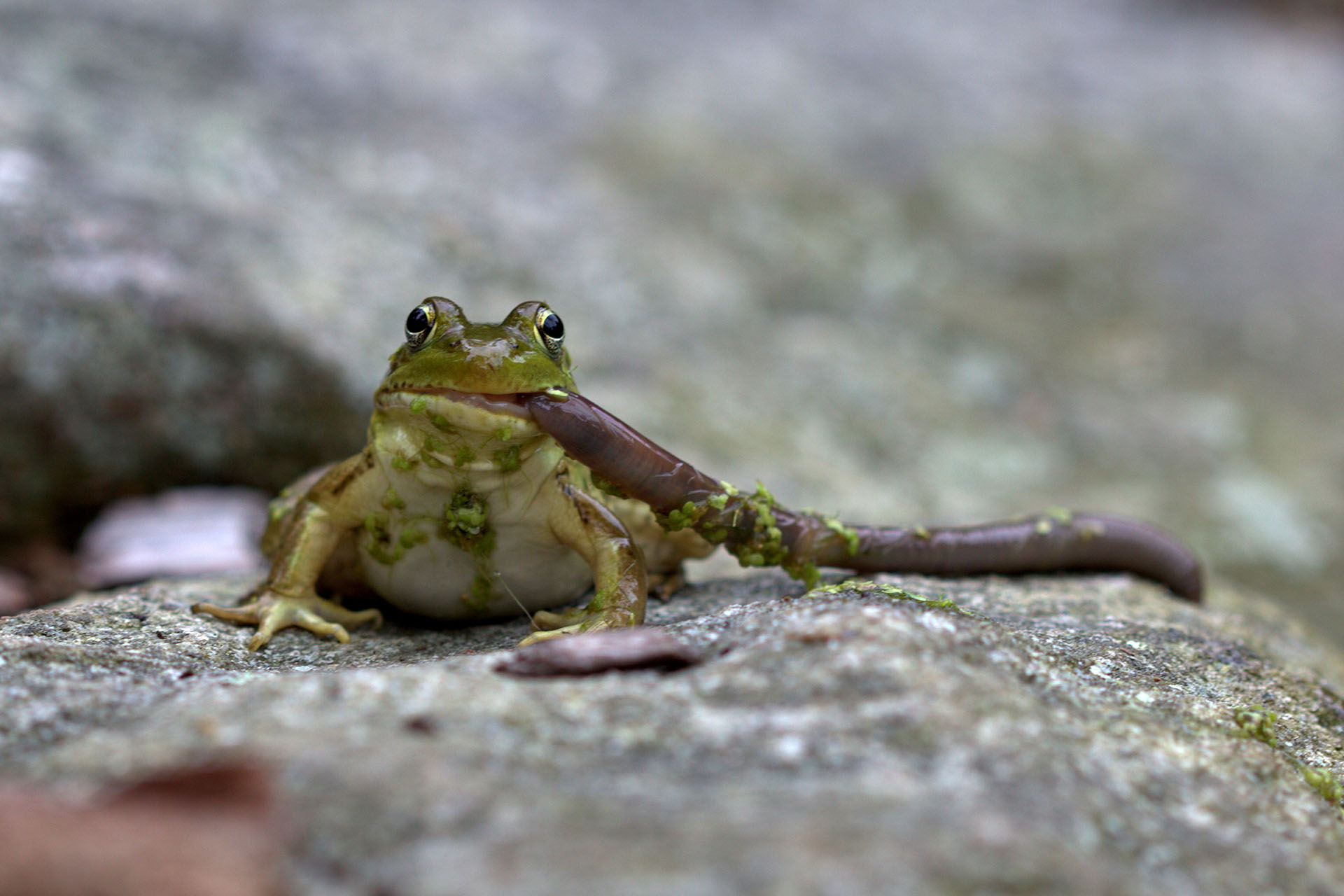- Home
- Participation
- Becoming a breeder
Becoming a breeder
At Citizen Conservation, professionals and private enthusiasts work hand in hand. You’ll find information on how you can participate here.
At Citizen Conservation, professionals and private enthusiasts work hand in hand. You’ll find information on how you can participate here.
Becoming a conservationist
Thousands of species are on the verge of extinction. Many animals can no longer survive in the wild. Zoos are working hard to conserve animals through captive breeding, but their capacities and resources are limited. Many private breeders have space, time, passion, and knowledge. Citizen Conservation (CC) unites private and professional conservationists in the fight against extinction. You, too, can breed an endangered species at home, and help it survive the next century.

Expert knowledge and accomodation
Every private breeder with some expertise and the necessary equipment can participate in protecting and conserving endangered animals.

Breeding
The animals are the property of Citizen Conservation but are bred by participants according to our recommendations. We will arrange accommodations for the offspring.

Coordination and Management
You report your breeding results back to us, and we manage the animals and data according to our breeding experience. We assemble the breeding groups and ensure the conservation of their genetic diversity.
Requirement: Expertise
Anyone who keeps an animal must have the necessary expertise. To help us assess this, please describe your level of knowledge and previous experience in keeping wild animals. Alternatively or in addition, we also recognise certificates of expertise such as those issued by the DGHT and VDA.
Requirement: Appropriate Accommodation
Please describe the equipment and technology that you have available so we can ensure the animals will be accommodated appropriately. We are glad to give you advice about how you can improve or enhance your equipment to meet our requirements.
Requirement: Communication
Experiences have to be shared. Citizen Conservation breeding recommendations are based on current scientific expertise and are continually updated, not least thanks to the insights of Citizen Conservation participants.
Requirement: Expertise
Anyone who keeps an animal must have the necessary expertise. To help us assess this, please describe your level of knowledge and previous experience in keeping wild animals. Alternatively or in addition, we also recognise certificates of expertise such as those issued by the DGHT and VDA.
Requirement: Appropriate Accommodation
Please describe the equipment and technology that you have available so we can ensure the animals will be accommodated appropriately. We are glad to give you advice about how you can improve or enhance your equipment to meet our requirements.
Requirement: Communication
Experiences have to be shared. Citizen Conservation breeding recommendations are based on current scientific expertise and are continually updated, not least thanks to the insights of Citizen Conservation participants.
The right animal for everyone

General Counsel Oliver Witte breeds Lake Patzcuaro Salamanders. © Oliver Witte
Have you done a lot of research, but you don’t have any practical experience yet? Or have you been breeding wild animals for years? We have the right species for everyone. To make your decision easier, the species in Citizen Conservation are divided into three categories:
Category I
Only for specialists and / or for animals that cannot be bred outside of Citizen Conservation.
Category II
For advanced animal breeders with practical experience; the animals may possibly be redistributed by Citizen Conservation.
Category III
Easy to breed successfully without prior experience, but with the appropriate expertise; the animals can be redistributed by Citizen Conservation.
On the Species page you can take a closer look at the species currently in the program.
Bio Security

Sampling a Common Toad © Susanne Knakowske, Frogs & Friends
Diseases and epidemics are a serious problem for conservation breeders. Therefore, Citizen Conservation finances the testing of all animals according to veterinary recommendations before they change locations. The breeder sends the required samples to Citizen Conservation’s partner laboratory to analyze. The animals can be passed on after they are cleared by the lab. This process ensures that the participants receive healthy animals (insofar as the lab can guarantee) and that no epidemic or dangerous parasites are spread through Citizen Conservation.
Practical Information: Animal Transfers
Once all the requirements are met and the animals are ready to be transferred, the participant will sign a contract with Citizen Conservation. The participant will organize and finance the transfer of the animals from the previous breeder.
Practical Information: Coordination and Inventory
The breeder regularly (usually twice a year) communicates his or her inventory to Citizen Conservation. This includes new offspring, death, or other observations. Citizen Conservation publishes this information and manages the development of the animal populations.
Practical Information: Relocation
All animals and their offspring are the property of Citizen Conservation. Usually, participants keep the animals they breed for however long they like, but the offspring are transferred to a new breeder in accordance with Citizen Conservation regulations.
Animal distribution

Lemur Leaf Frog © Benny Trapp, Frogs & Friends
Our experts have defined goals for the number of animals and breeders for each species. Until we have reached these goals, the offspring bred within the program have to stay within the Citizen Conservation framework. If the breeding program produces more animals than the goal Citizen Conservation has set, they can be redistributed to other breeders. In this way, healthy animals from our breeding programs can be available to people outside the program in order to reduce wild hunting. Species from Category I cannot be redistributed.
Cooperations

Feed the fish – and the frogs! © waysidelynne, Shutterstock
faunatopics GmbH supplies customers throughout Europe with a wide range of food insects. For our cooperation, we source food insects from six feet to eat GmbH, which was acquired by faunatopics and is based in Schnürpflingen. All common food insect species are bred there in food quality.
CC participants can purchase feed from six feet to eat at discounted prices for their animals – even for privately kept animals that are not part of a CC conservation breeding programme. In addition, school zoos receive a monthly voucher of € 5 from a value of € 30 per order. fauna topics also donates 5% of the turnover of all orders to Citizen Conservation.
- Home
- Participation
- Becoming a breeder
Contact
Citizen Conservation Foundation gGmbH
Reichenberger Street 88
10999 Berlin
Germany
Phone: +49 (0) 30 92 10 13-223
Mail: info |at| citizen-conservation.org
Web: www.citizen-conservation.org
- Home
- Participation
- Becoming a breeder
Contact
Citizen Conservation Foundation gGmbH
Reichenberger Street 88
10999 Berlin
Germany
Phone: +49 (0) 30 92 10 13-223
Mail: info |at| citizen-conservation.org
Web: www.citizen-conservation.org